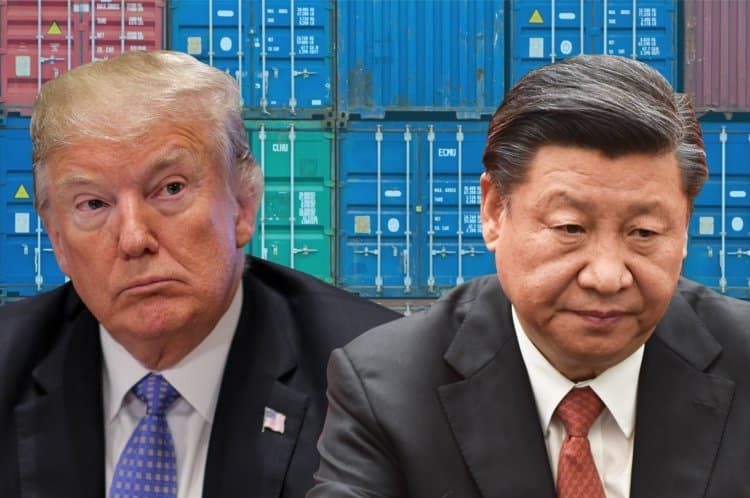With his characteristic flair, US President Donald Trump dramatically escalated the US-China trade dispute with a series of tweets early this morning. He increased tariffs to 25% on $250 billion worth of Chinese goods and he promised to add another $325 billion worth of goods to the 25% tariff regime.
Companies that export goods from China to the US will feel the pain immediately. Depending on how significant such exports are to the overall revenue base of each such company, this increase may be the death knell for some and a serious problem for all of them. For companies caught in the middle of this global powerplay, a Singapore-based strategy may offer a novel solution as explored in this post.
Some Background
US and China are large – but unbalanced – trading partners; the US exports approximately $130 billion worth of goods to China, while it imports goods worth nearly $500 billion from China (using 2018 figures). This trade imbalance has become a growing concern for US administrations from both parties. The US blames China for “unfair” policies that aid Chinese exports and hurt US exports. The specific policies in dispute are:
- Chinese government’s support of export-oriented industries that acts as an unfair subsidy,
- China’s violation of the Intellectual Property rights of US companies and institutions,
- Forced technology transfer agreements with US companies as a condition for operating in China, and
- China’s manipulation of its currency to favor its exporters.
China does not agree with these accusations; hence the dispute.
The Trump administration has made reducing US-China trade imbalance a signature issue of its trade policy. The parties have engaged in bilateral talks but as of May 10, 2019, those talks have not been successful. To ratchet up the pressure, the US has imposed a 25% tariff on $200 billion in Chinese exports in addition to the $50 billion already under such a tariff. Mr. Trump threatened to add an additional $325 billion to the tariff regime. Since China’s US imports are much smaller, a tit-for-tat trade war (where each country imposes similar tariffs) will be to China’s disadvantage. The bottom line is that Chinese companies who sell to the US will see a 25% tax on their sales.
Unfortunately, even if the trade dispute gets resolved in the near-term, Chinese companies are likely to remain pawns in the rapidly escalating strategic competition between the two leading economies of the world as they duke it out for global supremacy.
A Singapore Lifeline?
Singapore maintains very good relations with both China and US; ideally, it would like the trade dispute to end soon. The US- Singapore bilateral relationship is long, enduring, and very strong. The US views Singapore as a key partner in its Asia strategy. The two countries have extremely close diplomatic, military, economic, and trade alliance. It is extremely unlikely that the US would impose punitive trade tariffs on exports from Singapore. Asian companies, including companies in China, can establish a corporate presence in Singapore and send their exports to the US without the tariff penalty. If the company establishes suitable nexus with Singapore, follows appropriate transfer pricing policies, and labels its products correctly, such transhipments can be a lifeline for companies caught up in the trade war.
Besides its strong trade relations with the US, Singapore offers many other advantages to foreign companies who are seeking a tax-efficient home base to manage their Asian trade:
- Incorporating a company in Singapore is quick and efficient;
- It has extensive Double Tax Avoidance agreements network with countries around the world; and
- It has one of the world’s best ports.
The Singapore government is acutely aware of the challenges and opportunities that the current situation provides. Singapore should become a “safe harbour” for data, finance, talent, and technology and it must be prepared to deal with the fallout from the US-China trade dispute, said Trade and Industry Minister Chan Chun Sing on May 14, 2019, amid worsening tensions between Washington and Beijing.
“We can further distinguish ourselves by being the connector across different systems and standards. We will continue to promote integration, not fragmentation.”
– Chan Chun Sing, Trade and Industry Minister, Singapore. On May 14, 2019.
Therefore, the current situation between the US and China is a good impetus for Asian exporters to consider Singapore as their trading hub; they should incorporate either an independent company or a subsidiary in Singapore.
ABOUT CORPORATESERVICES.COM
Headquartered in Singapore, CorporateServices.com, empowers global entrepreneurs with information and tools necessary to discover Singapore as a destination for launching or relocating their startup venture and offers a complete range of company incorporation, immigration, accounting, tax filing, and compliance services in Singapore. The company combines a cutting-edge online platform with an experienced team of industry veterans to offer high-quality and affordable services to its customers. For any questions or assistance with establishing your presence in Singapore, please contact CorporateServices.com today.
Share this Post

